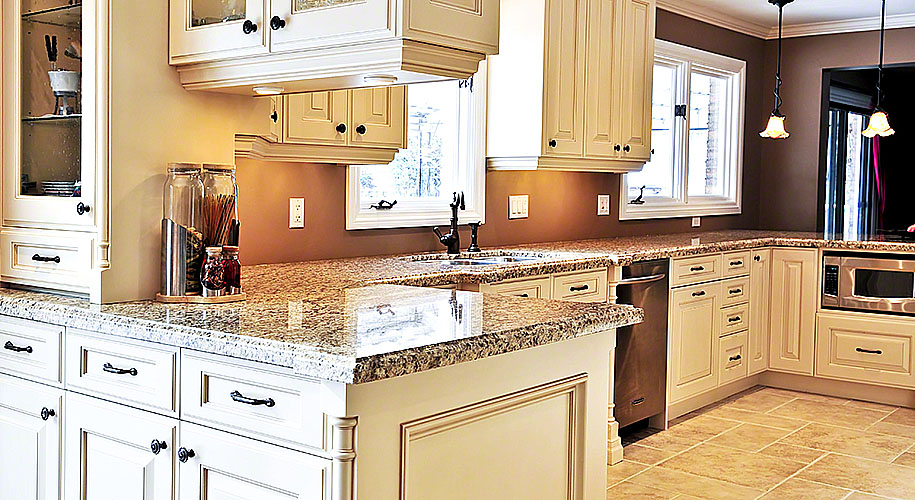There are many material choices for kitchen countertops. Marble and limestone are just two of the many options to choose from, but they are also some of the most popular ones. Here is everything you need to know about limestone and marble countertops.
Marble Countertops
It’s Delicate
Marble is known for being extremely delicate and fragile. It is a natural stone and it is one of the delicate stones found underneath the surface of the Earth. It is a great kitchen countertop material, but it does need a lot of maintenance. It is not easy to handle and it can also chip and break easily.
You also need to seal it in order to make it waterproof, because this material is extremely porous and it sucks in water and fluid pretty quickly, which can also lead to stains on your light-colored marble countertops.
Marble Is Beautiful
Marble is an extremely beautiful and breathtaking material. It is known primarily for its beauty and this is why a lot of people tend to gravitate toward marble. The light-colored base and the subtle and dark alternation of veining give this material a beautiful and ethereal look. This stone has been used for centuries by sculptors to make amazing sculptures and other articles.
Marble also gives the kitchen a minimal look and it looks amazing in any kitchen, no matter what the size is. Marble can also give an illusion of a bigger and more spacious kitchen with lots of light, especially if you opt for a lighter color.
An Expensive Material
Marble is a beautiful material, but this beauty comes at an extremely high cost. Judging by its performance in the kitchen and its durability, it is not worth the price. Also, a lot of people cannot afford marble, because they think that the price is not justified and it’s too expensive for something which is extremely delicate, needs a lot of maintenance, and requires sealing as well.
So, these extra expenses, on top of the original cost of marble, which is anywhere between $50-100 per foot, seem outrageous and completely unnecessary.
Limestone Countertops
It Is Reasonable
Limestone and marble may seem pretty similar to one another. That’s because they are. Limestone is a much-muted version of marble, which is very reasonable in price. You don’t need to spend a fortune to get this material installed and the results will be pretty similar.
Limestone comes in the form of slabs and tiles, but both of these variants are cheap and nowhere near as expensive as marble. This material is great, if you’re looking for an inexpensive alternative to marble, but want the same luxurious feel and appearance of the expensive and natural stone.
Limestone Needs Sealing
Limestone countertops, like any other natural stone, also needs to be sealed. This is one similarity between marble and limestone which can be a nuisance, especially when there are materials available, which don’t need sealing at all and still work effortlessly. But sealing will do you a huge favor, because you don’t need a lot of maintenance afterward.
This material, once sealed, cannot be stained and the sealed coating lasts for a good amount of time. It can be an extra step to go through, but this will pay out in the long run, when your countertops will be perfectly fine, even after years have passed.
Limestone More Durable Than Marble
Limestone is a much better alternative to marble. This material is great for use in the kitchen and bathrooms as well. Although the composition of marble and limestone are pretty similar, limestone still has the upper hand, when it comes to durability and maintenance.
Limestone is pretty much the best material to go for if you want to replicate the look of marble, as well as want variety in colors, design, and patterns, because marble is only available in lighter colors, whereas limestone is better since it has a lot of options to choose from.
Conclusion
There you have it! Marble and limestone have their own sets of pros and cons, characteristics and features, and now, you know which one to go for. If you’re confused, go to a granite company Durham NC and check out different marble and limestone slabs and discuss your preferences with the experts.
